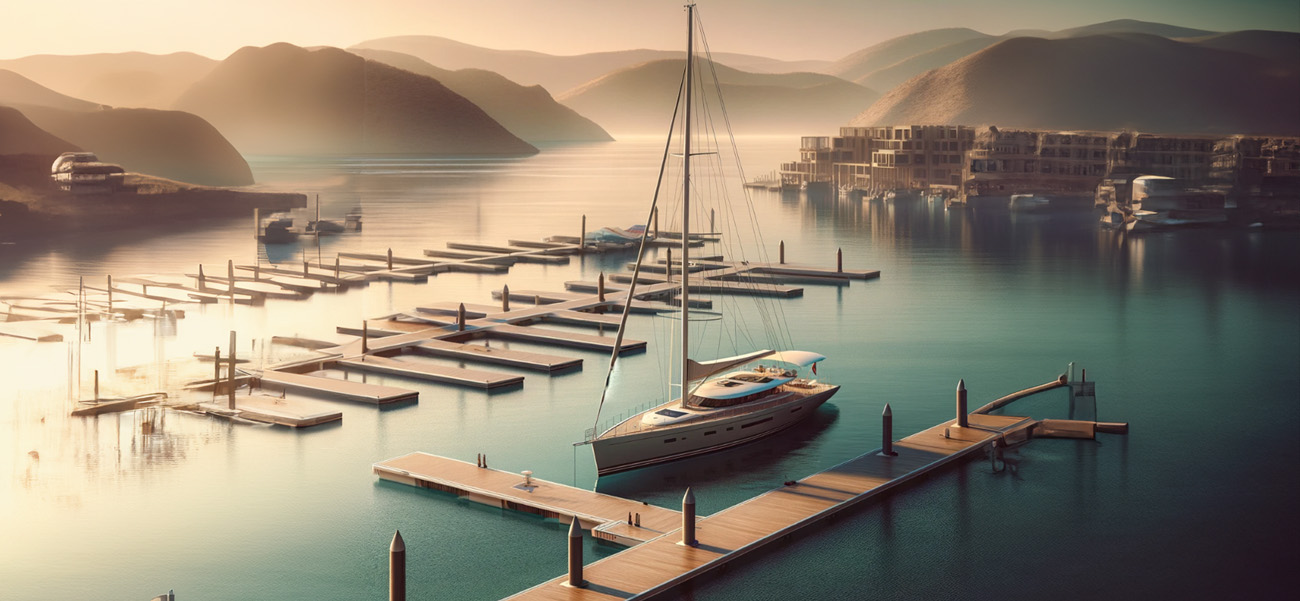Calm After the Storm: Unveiling Al Hallaniyyah’s Heart
As recounted in my previous blog, our journey led us to an unexpected haven – Al Hallaniyyah. With its surprisingly well-constructed marina, this island was a beacon of hope amidst our tumultuous voyage. Docking there, we experienced a mix of relief and astonishment, a testament to the island’s hidden resilience.
As we carefully manoeuvred our boat into the small yet surprisingly well-constructed marina, the tension and stress of our journey began to ebb away. The docking process, often a routine task, took on a new significance in this unfamiliar setting. Here, we first experienced the island’s remarkable spirit of community and assistance.
Several locals, noticing our arrival, approached to lend a hand. They moved with a sense of purpose and efficiency that spoke of their familiarity with the sea and its vessels. Their help in securing our boat to the dock was not just a physical aid but a symbolic gesture of welcome, easing our transition from the unpredictable ocean to the stability of the land.
As we stepped onto the dock, the reality of our safe arrival began to sink in, and our stress levels visibly diminished. It was at this moment that the islanders, with genuine concern and curiosity in their eyes, approached us. Their simple yet profound words resonated deeply: “Messenger of the God, what do you need? How can we help?”
Our primary concerns were straightforward yet vital for our continued journey – securing diesel and replenishing our provisions!
As Fiori and I stood there, absorbing the words of the islanders, a wave of disbelief washed over us. “We have no Diesel on this Island,” they had said, a statement so stark and unexpected that it momentarily stunned us. Our minds struggled to reconcile this reality; it was a jarring obstacle, sharply juxtaposed against our critical need for fuel.
The realization hit us hard. Here we were, on an island that seemed like a sanctuary, only to find that it lacked the very resource essential for our journey’s continuation. It was a moment that tested our resilience, challenging us to adapt to this unforeseen hurdle.
Yet, the conversation didn’t end there. The locals, sensing our growing unease, quickly added, “But, we will take you to the Supermarket.” This offer, simple in its nature, was a lifeline in that moment of uncertainty.
Faced with this dilemma, I found myself adopting a mindset of optimism and resourcefulness. Turning to Fiori, I suggested, “Let’s shift our perspective. We must focus on what we have at our disposal rather than what’s missing.” It was a moment of recalibrating our approach, a shift towards proactive problem-solving in the face of adversity.
In this spirit, a local islander, whose face was etched with kindness, stepped forward to assist us. With a welcoming smile, he offered to drive us to the only supermarket on the island.
As we drove through the island’s winding paths, a sense of surreal wonder enveloped me. It was as if we had been transported by some mystical force, not just across the sea, but through time itself. The island unfurled around us like a tapestry from a bygone era, untouched by the relentless march of modernity.
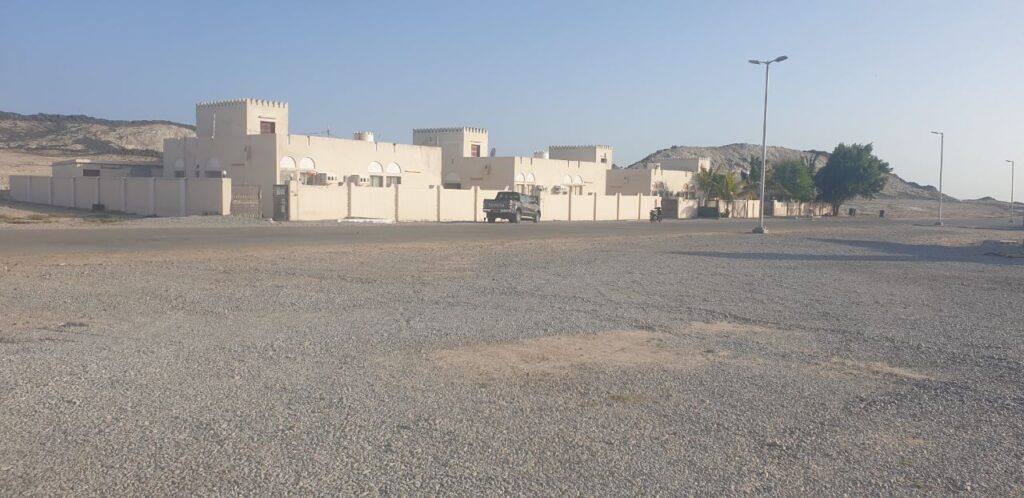
The houses we passed were marvels of traditional architecture, standing proudly as testaments to a culture that valued heritage over haste. Each structure was unique, that spoke of generations of knowledge and pride. The walls, adorned with intricate designs, and the roofs, curved in harmony with the landscape, seemed to whisper stories of the past.
Children played in the narrow streets and open fields, their laughter a melody that transcended time. They chased each other with a carefree joy that was infectious, their games simple yet filled with an energy that was as pure as it was poignant. Watching them, I was reminded of the universal language of play, a language that knows no boundaries of time or technology.
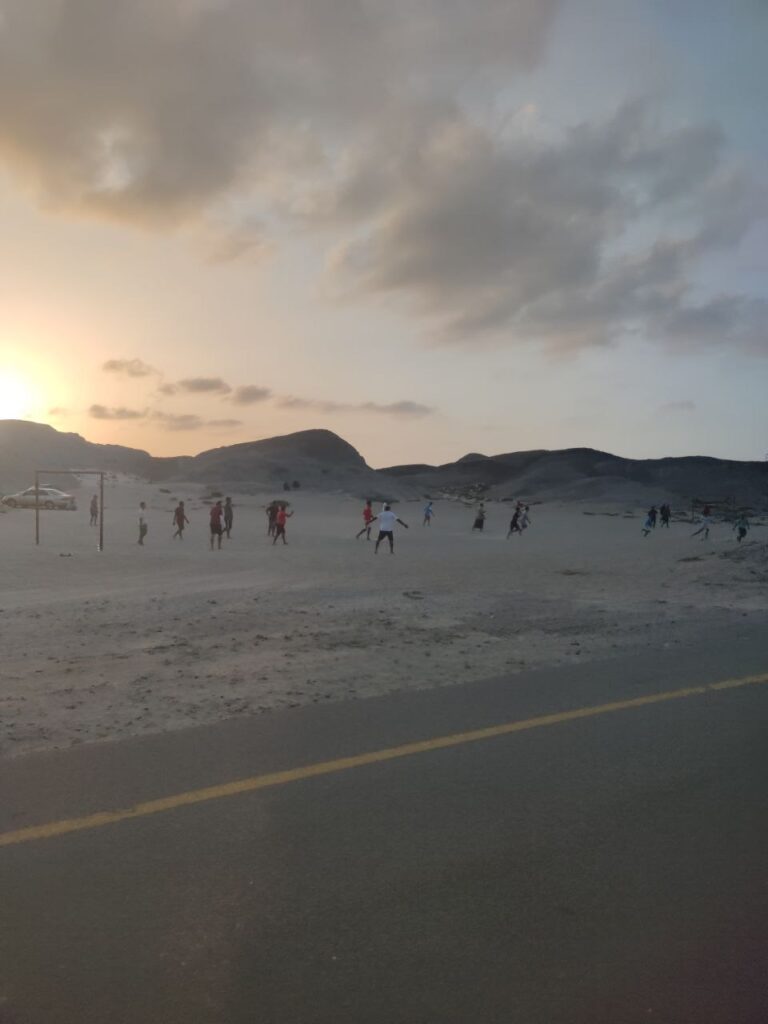
Despite the pervasive aura of antiquity, there were subtle reminders that we were still anchored in the present. Although few, cars traversed the narrow roads, their presence anachronistically yet seamlessly integrated into the island’s rhythm. The few threads connected this timeless place to the broader digital world were the sight of electrical poles standing sentinel and the occasional glimpse of a cell phone in someone’s hand.
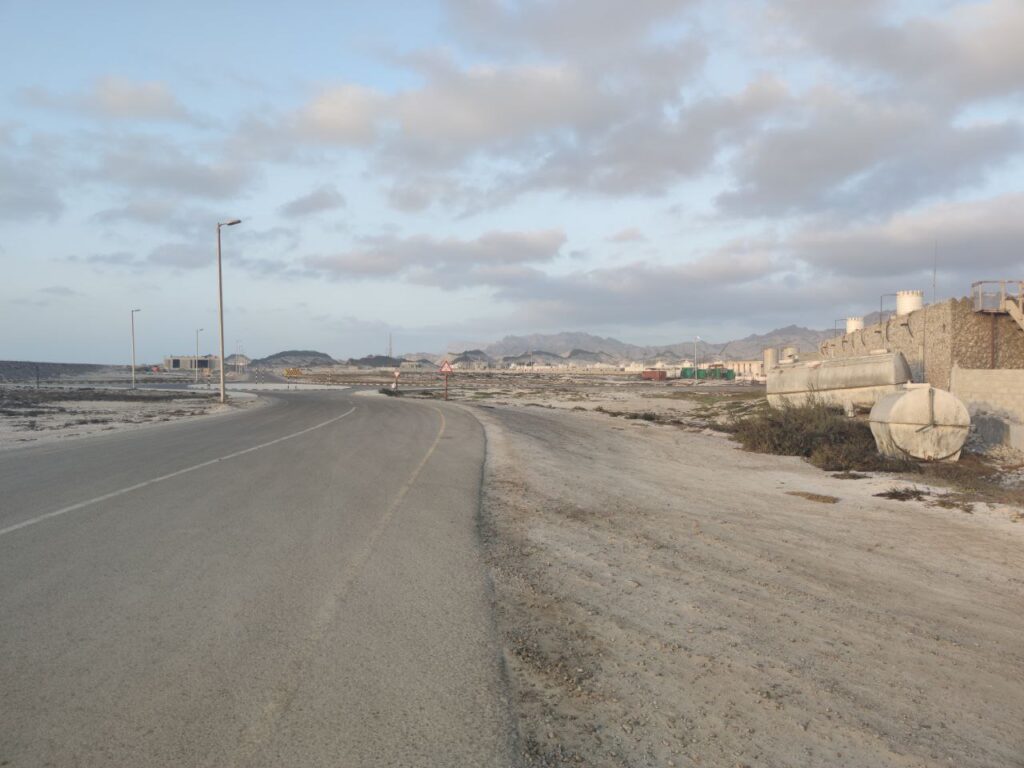
As we continued our journey, I was struck by the islanders’ profound respect for their traditions. It was a place where the past was not just remembered, but actively lived and cherished. This preservation of culture in the face of a rapidly changing world was not just admirable; it was inspiring.
The island, with its blend of timelessness and subtle touches of modernity, was a reminder that progress and tradition could coexist in a delicate, respectful balance. It was a lesson in the value of preserving one’s heritage while gently embracing the present.
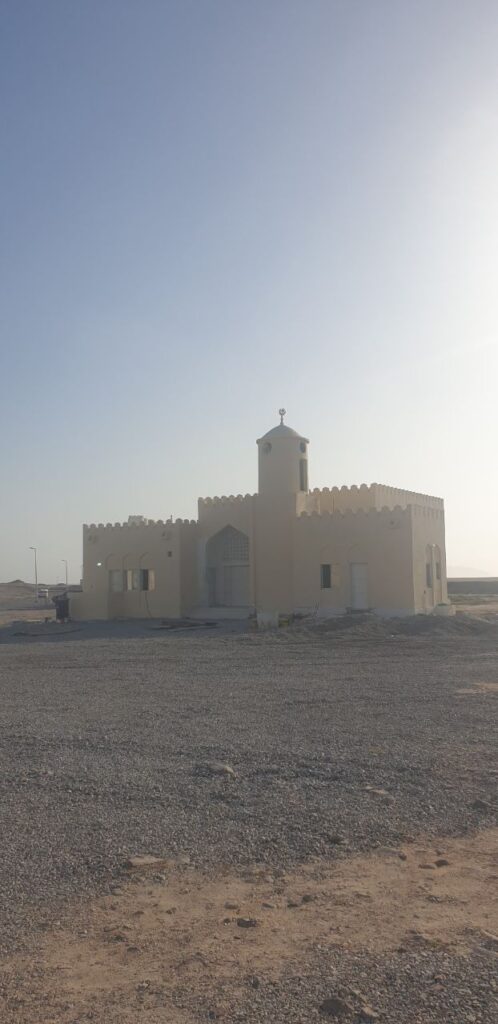
The drive through Al Hallaniyyah’s tranquil landscapes culminated at the “Commercial Market,” a modest establishment that stood as the only supermarket on the island. Fiori, our amiable local guide, and I stepped into the store, finding ourselves amidst a scene that was as humble as it was revealing.
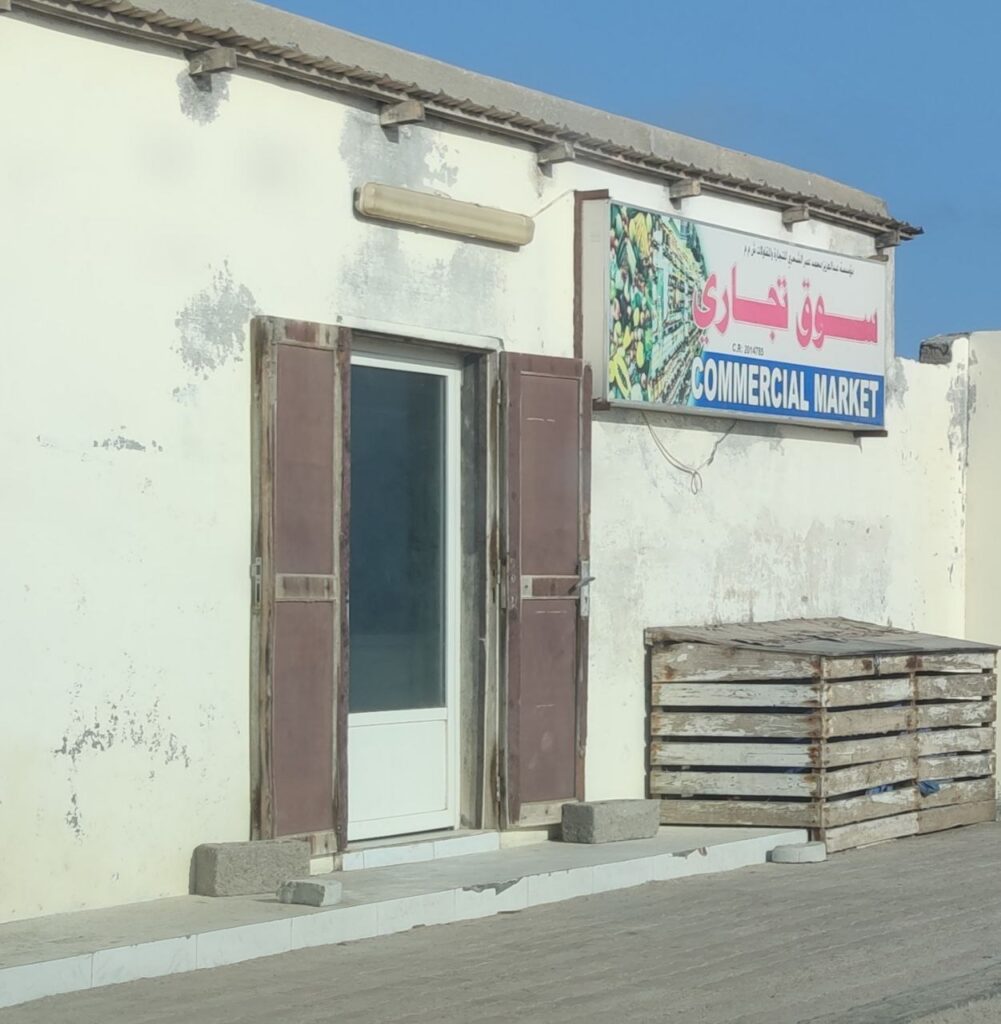
Inside, the store was sparsely populated, hosting just two other individuals – the storekeeper, whose expression was a blend of hospitality and quiet resignation, and another local, seemingly making the most of the limited offerings. The store itself was a small, unpretentious space, its shelves echoing the simplicity of the island life.
As we surveyed the store, it became clear that our options were severely limited. The shelves, sparsely stocked, held just a few basic necessities. We managed to gather all the available drinking water and some Snickers bars, a meager haul that underscored the scarcity of resources.
Fiori’s disappointment was palpable as he inquired about additional provisions – vegetables, any sort of sustenance beyond the bare essentials. Each query was met with a regretful response from the storekeeper. The air was heavy with an unspoken understanding of the island’s limitations.
Trying to lighten the mood, I turned to Fiori with a jest, “Don’t worry, we won’t starve. We’ve got water, Snickers, and let’s not forget – Poseidon is always there to provide us with some fish.” The attempt at humour fell flat in the face of our stark reality, but it was a moment of trying to find a silver lining, however faint, in our situation.
As we gathered our scant purchases, a sense of inadequacy hung over us – water and Snickers bars were far from sufficient. Fiori’s visible disappointment as he inquired for more – vegetables, anything of substance – was met with regretful shakes of the head from the store clerk. It seemed as though our journey had hit yet another roadblock.
In the midst of our modest shopping endeavours, a poignant episode unfolded, one that would forever etch this island in our hearts. A local shopper, who had been in the store during our attempt to procure supplies, observed our situation empathetically. And… then, something remarkable happened. He left the store with a sense of purpose, a determination that spoke volumes. We watched, perplexed, as he disappeared from view, wondering about the intent behind his hurried departure.
Moments later, he reappeared, his arms laden with bags brimming with provisions from his own home. This was no small gesture; it was a profound act of selflessness. He had witnessed our plight and, without a second thought, rushed to his home to gather whatever he could spare – vegetables, staples, nourishing morsels from his own pantry. His insistence that we accept his gift, refusing any form of payment, was deeply moving. “No, no money from the Messenger of the God,” he asserted, a statement that resonated with profound respect and generosity.
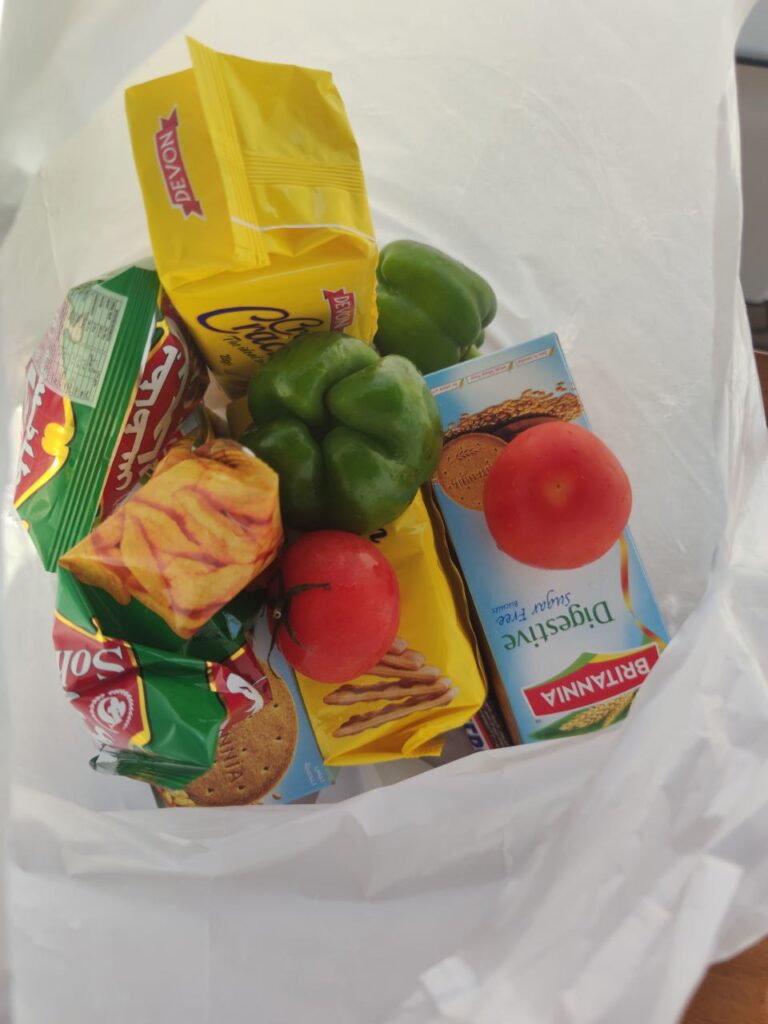
In that moment, as we accepted his humble offering, a bond was formed – a bond that transcended cultural and linguistic barriers. It was a vivid reminder that sometimes, the greatest lessons in humanity come from those who have the least to give, yet give the most generously. This man, with his spontaneous act of kindness, became a symbol of the island’s spirit, a living embodiment of the compassion and community that Al Hallaniyyah represented.
As we carried the bags to our boat, each item was not just a physical necessity; it was a piece of the island’s heart, a gesture that imbued our journey with renewed hope and a deep sense of gratitude.
Upon our return to the boat, the warmth and curiosity of our newfound friends from Al Hallaniyyah were palpable. They gathered around, eager to offer further assistance. Welcoming them aboard, we felt a sense of camaraderie that transcended our initial status as strangers. Their inquisitive eyes took in our vessel’s details, a silent testament to our journey through the storm.
The conversation soon turned to our pressing needs. We explained that our immediate requirements were to refill the boat with fresh water and, more critically, to secure diesel. Our situation was precarious, but the willingness of the islanders to help was a beacon of hope.
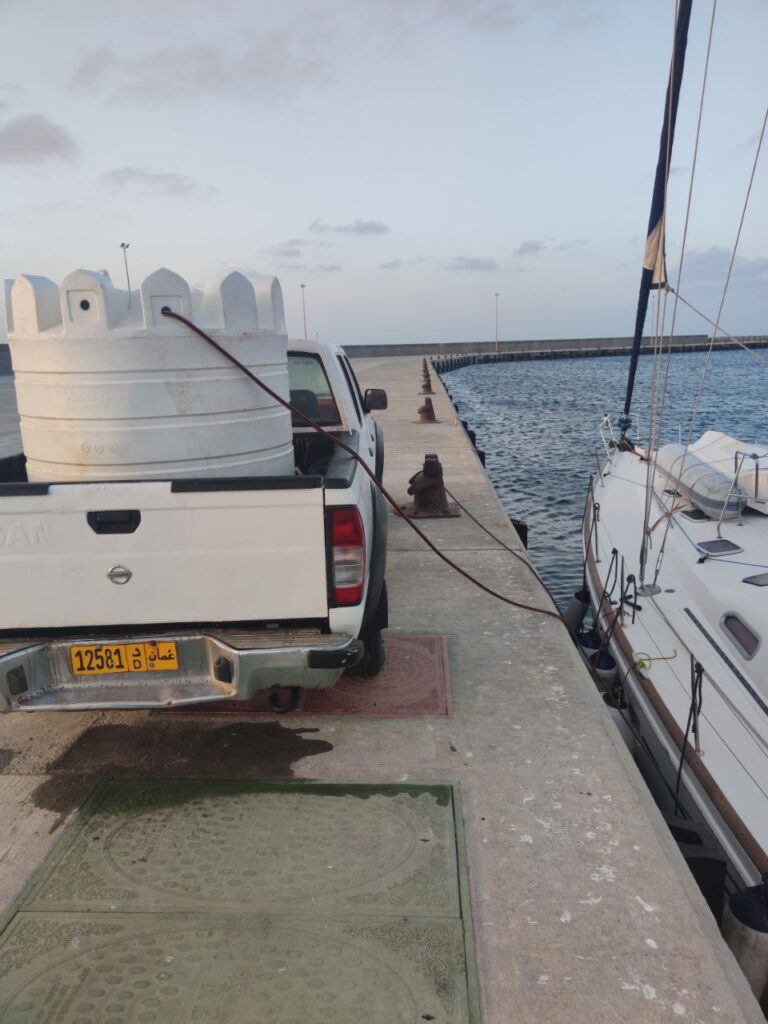
The local who had generously provided us with vegetables earlier engaged in animated discussion with our guide, their words a rapid exchange in Arabic, a language foreign to our ears. Then, with a sense of purpose, he began making phone calls, his tone urgent but optimistic. After several calls, he turned to us with promising news: arrangements were being made to meet us out in the ocean with the much-needed diesel. This development, though laden with logistical challenges, was a ray of hope in our otherwise dire situation.
Our conversation was momentarily interrupted as he received another call. This time, it was an invitation that took us by surprise. The Sheikh of Al Hallaniyyah wished to speak with us directly. My heart raced at the prospect. To converse with the Sheikh was not only an honour but also a potential turning point in our predicament.
“Of course,” I responded eagerly, “It would be a great privilege to speak with the Sheikh.” Moments later, I found myself on the phone with His Highness. His voice was calm and reassuring, extending an invitation to meet and expressing a heartfelt commitment to assist us, the ‘Messengers of the God.’
As the phone call with the Sheikh concluded, I stood there, momentarily overwhelmed by the gravity of the situation. Turning to our new friend, I shared the astonishing news, “His Highness has requested to meet me in person.” The words felt surreal, echoing our journey’s unexpected turn since arriving at Al Hallaniyyah.
In the midst of this revelation, curiosity got the better of me, and I posed a question that had been lingering in my mind since our arrival. “Why do you call us ‘Messengers of the God’?” I asked, looking into the faces of our new friends. The title, both intriguing and mysterious, had added an enigmatic layer to our experience on the island.
Their response, I hoped, would shed light on this fascinating aspect of our encounter with the people of this island, a place that continued to surprise and move us in ways we never anticipated.
The warmth in their eyes reflected a mix of curiosity and reverence. It was then that they began to unravel the story behind the enigmatic title they had bestowed upon us – “The Messenger of the God.”
One of the elders, his face etched with the wisdom of years, took the lead in explaining. His voice, tinged with a sense of awe, conveyed the deep cultural and spiritual beliefs that lay at the heart of their community. He spoke of an ancient tradition, woven into the fabric of their society, about how rare individuals are sometimes seen as divine messengers, especially under extraordinary circumstances.
He described how their community, deeply rooted in faith and the rhythms of nature, viewed the storm season – from May to October – with a mixture of respect and caution. It was a time when the sea transformed into a tempestuous force, one that was both revered and feared. Navigating these waters during this period was considered a feat beyond the capabilities of ordinary mortals.
The elder’s eyes gleamed with a mixture of respect and wonder as he recounted how the islanders had witnessed our approach. Our yacht, with its billowing white sails, had appeared on the horizon, cutting through the massive waves and the raging storm as if guided by an unseen force. To the islanders, this was no ordinary arrival; it was a spectacle that seemed to defy the very laws of nature.
“To us,” he said, “your vessel was like a phantom ship, emerging unscathed from the wrath of the ocean. In our eyes, only those under the protection of the divine could achieve such a feat. You were not just brave sailors; you were messengers sent by God, shielded by His grace.”
The revelation was both humbling and surreal. We sat there, absorbing his words, mixed emotions swirling within us. It was a perspective that transcended the physical challenges of our journey, elevating it to something mystical, almost ethereal. This belief, so deeply ingrained in their culture, was their way of making sense of our improbable journey through the storm.
Their conviction that we were ‘Messengers of the God’ was not just a title; it was an expression of their faith, their way of interpreting the extraordinary through the lens of their beliefs. It was a moment of profound connection, where two worlds met – ours, grounded in the realities of seafaring, and theirs, steeped in the mysteries of faith and tradition.
As the night deepened and the conversation dwindled, we were left with a sense of wonder and a newfound understanding of the island’s culture. Their interpretation of our journey had given it a new dimension, one that we would carry with us as we continued our voyage.
The journey to meet the Sheikh was a reflective one. The landscape unfolded around us, a tapestry of tradition and simplicity, leading us to the abode of a man who was as much a part of this island as the sand and sea.
Meeting the Sheikh was an experience that transcended mere formality. His demeanor was a blend of regality and warmth, his humble nature belying the respect he commanded. Our conversation flowed naturally, as if we were old friends. He inquired about our journey, listened intently to our experiences, and shared stories of his island, its people, and their way of life. It was a dialogue that bridged worlds, connecting our sea-tossed existence with the grounded, serene life of Al Hallaniyyah.
As our meeting neared its end, the Sheikh made a decision that was both generous and self-sacrificing. He offered us the diesel we so desperately needed, not from any reserve or hidden stock, but from the island’s main generator. This was not a mere gesture of assistance; it was an act of profound altruism. To offer us the lifeblood of their electrical grid was to put their comfort and convenience at stake for the sake of helping virtual strangers.
I was speechless, overwhelmed by the magnitude of his offer. The Sheikh, noticing my hesitation, reassured me with a gentle firmness, “Your journey is now part of our journey. We share in your challenges as you have entered our lives.”
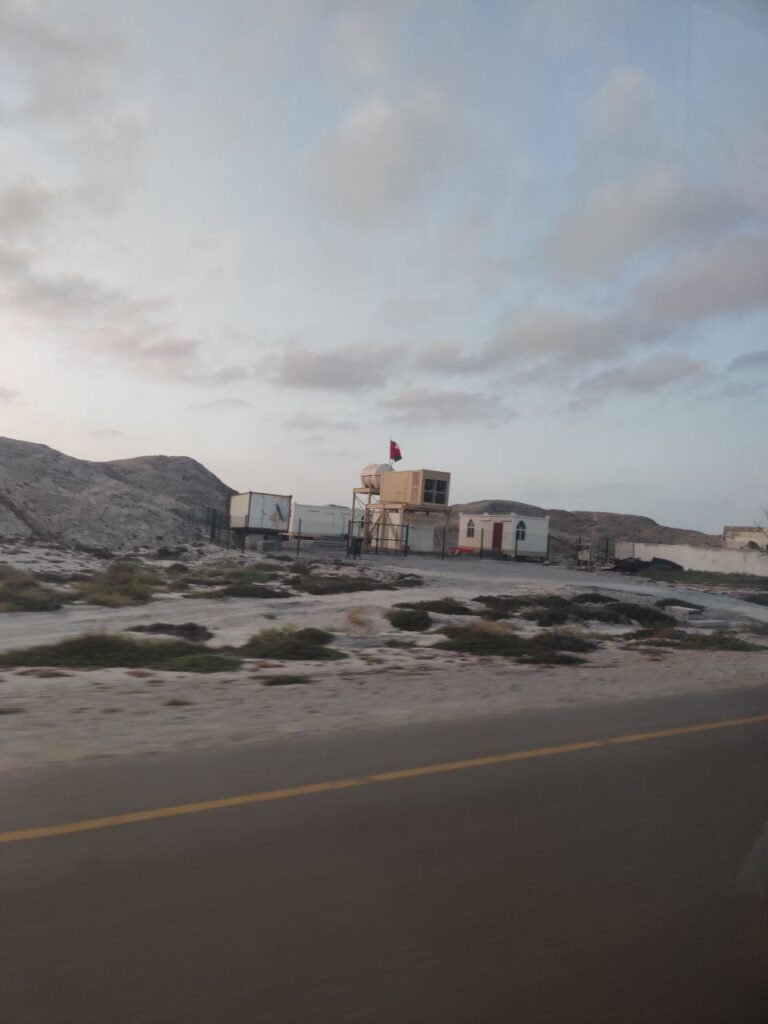
The return to the marina was a journey back to reality, but with a renewed sense of hope and gratitude. The Sheikh’s act of kindness was a powerful reminder of the goodness that exists, often in the most unexpected places and forms. As we began the process of transferring the diesel to our boat, it was not just a physical act of refuelling; it was a symbolic gesture of the island’s embrace, a testament to the power of human connection and the boundless spirit of generosity.
That night, as the moon cast a serene glow over the marina, a quiet yet poignant incident unfolded, one that further deepened our connection to the island and its people. Exhaustion had enveloped us after a day of unexpected turns and heartfelt interactions. Fiori and I had surrendered to sleep’s embrace, the gentle rocking of the boat cradling us into a peaceful slumber. During these tranquil moments, a soft, persistent whisper broke the silence of the night. “Canadian, Canadian, Canadian,” the voice called out, tinged with a cautious urgency.
I stirred from my sleep, a mixture of curiosity and confusion guiding me to the deck. There, in the dim light, stood a man from the island, a familiar face from earlier encounters. His hands were laden with several hefty plastic bags, their contents hidden but undoubtedly substantial.
His approach was hesitant yet purposeful, as if he was carrying not just food but a message of solidarity. “I heard you needed food,” he said, his voice a blend of concern and generosity. The bags, he explained, were filled with groceries – items he had gathered from his own home and possibly from neighbours, a collective offering from the heart of the community.
I tried to protest, to explain that we had no means to repay his kindness, our funds depleted. But he brushed aside my concerns with gentle firmness, insisting that no payment was needed for ‘The Messenger of the God.’
As he placed the bags on our boat, each item felt like a treasure, not for its material value, but for the love and care it represented. The bags contained more than just food; they held the essence of Al Hallaniyyah – a community where kindness was instinctive, and helping strangers was as natural as breathing.
His departure was as quiet as his arrival, leaving us with a boatload of provisions and hearts full of gratitude. As I sat there, surrounded by the unexpected bounty, I was struck by the profound simplicity and beauty of the moment. It was a reminder that in some places in the world, kindness is not just an act; it’s a way of life.
That night, as I gazed at the stars reflecting on the water, I pondered over the day’s events. The island and its people, with their unwavering generosity and warmth, had not just provided us with physical sustenance; they had nourished our souls. They had shown us that even in the vastness of the ocean, human connections could be as deep and enduring as the sea itself.
The dawn at Al Hallaniyyah broke with a soft, golden light, casting serene hues over the marina. It was a new day, one that Fiori and I began with a sense of purpose and gratitude. Our yacht, which had been a sturdy companion through tumultuous seas, was now in need of attention and care.
As the morning unfolded, we delved into the rhythm of maintenance and repairs. Each task, from tightening bolts to examining the rigging, was done with meticulousness born from our recent experiences. The temporary fixes we had made during the storm were now replaced with permanent solutions, our hands moving with practised ease that spoke of our deepening bond with the vessel.
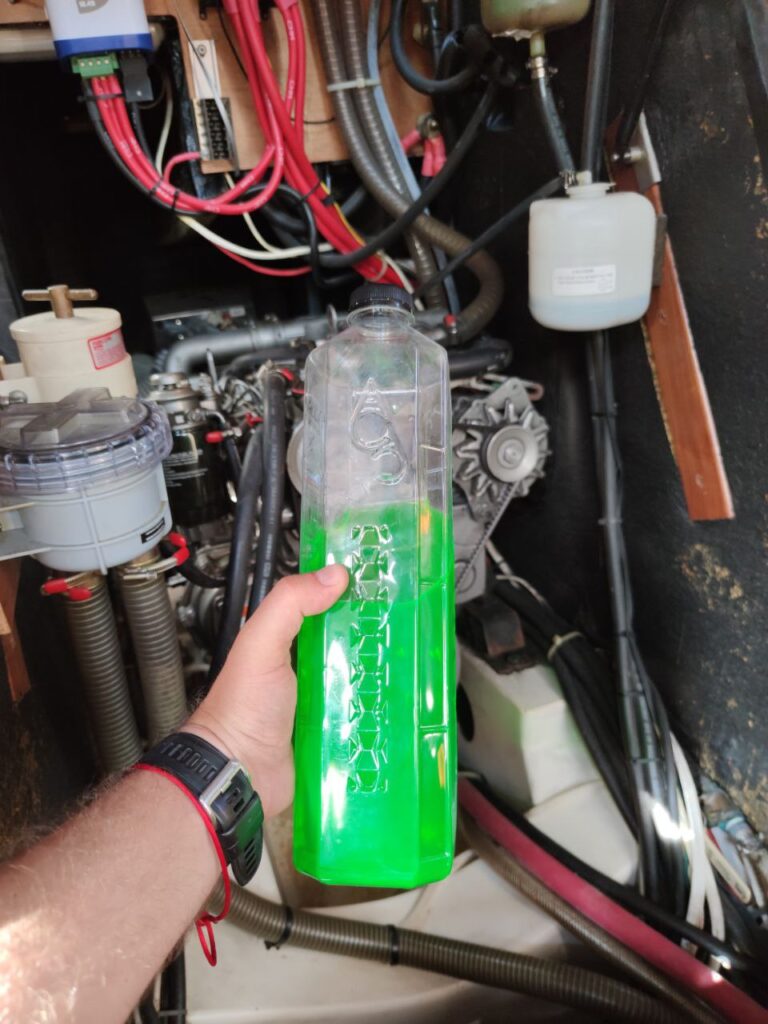
Amidst this diligent work, we noticed a gathering crowd at the marina. The young and old islanders had started to trickle in, their faces alight with curiosity and admiration. It soon became apparent that they were there for us – or more precisely, for our boat, which had become a symbol of intrigue and wonder.
Their approach was respectful yet filled with eager anticipation. Many asked if they could come aboard, their eyes gleaming with the prospect of stepping onto the vessel that had braved the stormy seas. Fiori and I exchanged glances, a silent agreement passing between us. This was our chance to give back, in our own small way, to the people who had shown us immeasurable kindness.
We welcomed them aboard, opening up our temporary home for their exploration. The yacht, which had been a private space for us, transformed into a stage for shared joy and wonder. The locals moved around with a reverent curiosity, their fingers tracing the lines of the boat, eyes wide at the sight of our navigation equipment and the living quarters.
The ‘photoshoot’ that ensued was a spontaneous celebration of connection. Cameras and phones came out, capturing moments of laughter and shared stories. Each photograph was a memento of an extraordinary encounter between two vastly different worlds – theirs, rooted in the traditions of the island, and ours, a transient journey across the seas.
Allowing them on the boat, seeing their smiles, and hearing their laughter was our way of saying ‘thank you.’ It was a small gesture compared to their grand acts of kindness, but it was heartfelt. As they posed, clicked pictures, and thanked us for the experience, we realized that this exchange was more than just a visit; it was an acknowledgement, a mutual appreciation of our shared humanity.
As the day progressed towards the afternoon, the realization that our departure was imminent began to settle in. Our new friends, aware of our plans, expressed their wishes for us to stay longer. Their invitations, filled with sincerity, were tempting, but our journey had to continue.
Around 2 PM, with heavy hearts but eager spirits, we set our course anew. Leaving the marina was emotionally challenging; the bonds we had formed with the islanders were not easily left behind. Yet, as we sailed away, the memories of their smiles, the photos capturing moments of pure human connection, and the profound kindness they had shown us, filled us with a sense of hope and joy.
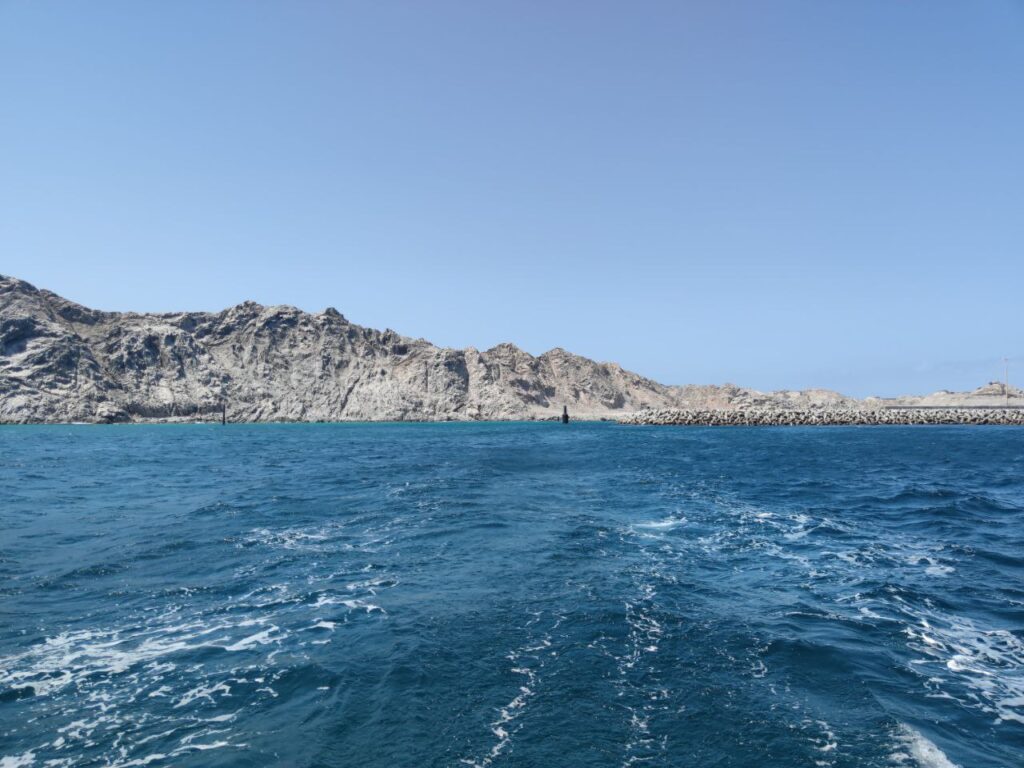
This island, with its remarkable people, had not just been a stopover; it had been a lesson in generosity, a reminder of the goodness that exists in the world, and a testament to the power of simple acts of kindness.
In those quiet moments aboard our boat, as the gentle hum of the marina filled the air, I found myself immersed in deep reflection. The events of our time on Al Hallaniyyah touched me profoundly, reaching into the depths of my heart in ways I had not anticipated. The kindness, and sheer humanity of the islanders, were a beacon of light in a world that often seemed shrouded in the shadows of self-interest and detachment.
For a while, I grappled with the surreal nature of our experience. It felt almost dreamlike, as if we had stepped into a realm where the usual rules of human interaction were rewritten. The generosity we encountered, the unreserved warmth and willingness to help from people who were essentially strangers, seemed like echoes from a forgotten time.
It took time for the reality of it all to truly sink in. A sense of overwhelming gratitude and joy washed over me when it did. In this small, isolated part of the world, we stumbled upon a community that exemplified the very best of what it means to be human. They showed us that respect, kindness, and a genuine concern for others were not traits of the past, but very much alive and thriving.
Their actions, so simple yet so profound, were a stark contrast to the transactional nature that often characterizes human relationships in the modern world. Here were people who, without a second thought, were ready to turn off their main source of electricity, plunging into darkness, just to help two strangers. This level of selflessness was a rarity, a precious glimpse into a way of life governed by empathy and community spirit.
I found myself silently thanking the universe for leading us to this island, and for the chance to meet these remarkable people. They were living proof that our world still has pockets of hope, communities where the currency is not money or goods, but kindness and human connection. Their willingness to help, without any expectation of return, was a powerful reminder of the potential for goodness in every corner of the globe.
This experience on the island was more than just a respite from our journey; it was a transformative encounter that redefined my understanding of what it means to be part of a global community. It was a poignant reminder that, even in a world that often feels dominated by materialism and disconnection, there are places where the light of human kindness shines brightly, guiding us towards a more hopeful and united future.
Our journey continues, with the ocean’s vast expanse before us, and the memories of Al Hallaniyyah etched in our hearts.
Stay tuned for more tales of our voyage, where each wave brings a new story, a new lesson, and a renewed sense of wonder at the world around us.



